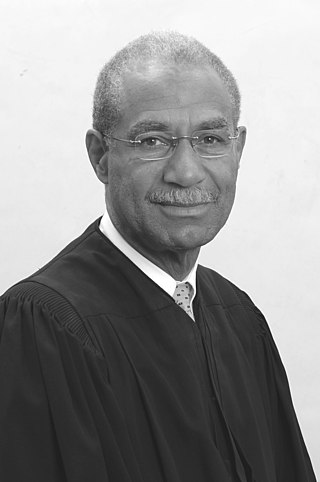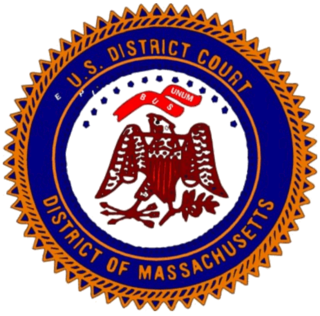In common law jurisdictions, a preliminary hearing, preliminary examination, preliminary inquiry, evidentiary hearing or probable cause hearing is a proceeding, after a criminal complaint has been filed by the prosecutor, to determine whether there is enough evidence to require a trial. At such a hearing, the defendant may be assisted by a lawyer.
In law, a plea is a defendant's response to a criminal charge. A defendant may plead guilty or not guilty. Depending on jurisdiction, additional pleas may be available, including nolo contendere, no case to answer, or an Alford plea.
A statute of limitations, known in civil law systems as a prescriptive period, is a law passed by a legislative body to set the maximum time after an event within which legal proceedings may be initiated. In most jurisdictions, such periods exist for both criminal law and civil law such as contract law and property law, though often under different names and with varying details.
An inquisitorial system is a legal system in which the court, or a part of the court, is actively involved in investigating the facts of the case. This is distinct from an adversarial system, in which the role of the court is primarily that of an impartial referee between the prosecution and the defense.
A fair trial is a trial which is "conducted fairly, justly, and with procedural regularity by an impartial judge". Various rights associated with a fair trial are explicitly proclaimed in Article 10 of the Universal Declaration of Human Rights, the Fourth, Fifth, Sixth, Seventh, and Fourteenth Amendments to the United States Constitution, and Article 6 of the European Convention of Human Rights, in addition to numerous other constitutions and declarations throughout the world. There is no binding international law that defines what is not a fair trial; for example, the right to a jury trial and other important procedures vary from nation to nation.
The Minuteman Project is an organization which was founded in the United States in August 2004 by a group of private individuals who sought to extrajudicially monitor the United States–Mexico border's flow of illegal immigrants. Founded by Jim Gilchrist and Chris Simcox, the organization's name is derived from the name of the Minutemen, militiamen who fought in the American Revolution. The Minuteman Project describes itself as "a citizens' Neighborhood Watch on our border", and it has attracted the attention of the media due to its focus on the issue of illegal immigration.

The Illegal Immigration Reform and Immigrant Responsibility Act of 1996 made major changes to the Immigration and Nationality Act (INA). IIRIRA's changes became effective on April 1, 1997.

The Criminal Court of the City of New York is a court of the State Unified Court System in New York City that handles misdemeanors and lesser offenses, and also conducts arraignments and preliminary hearings in felony cases.

Samuel Simon Leibowitz was a Romanian-born American criminal defense attorney. He was best known for representing the Scottsboro Boys, and later became a justice of the New York State Supreme Court.

Foreign nationals (aliens) can violate US immigration laws by entering the United States unlawfully or lawfully entering but then remaining after the expiration of their visas, parole, or temporary protected status. Illegal immigration has been a matter of intense debate in the United States since the 1980s.

Andrew Peyton Thomas is an American politician, author and former attorney. He was the county attorney for Maricopa County in Arizona from 2004 until April 6, 2010. During his term in office, he was known for his anti-illegal immigrant policies. On April 10, 2012, Thomas was disbarred by a disciplinary panel of the Arizona State Supreme Court for his actions as county attorney.

Susan Marie Ritchie Bolton is a senior United States district judge of the United States District Court for the District of Arizona.

The United States government holds tens of thousands of immigrants in detention under the control of Customs and Border Protection and the Immigration and Customs Enforcement (ICE). Immigrants are detained for unlawful entry to the United States, when their claims for asylum are received, and in the process of deportation and removal from the country. During Fiscal Year 2018, 396,448 people were booked into ICE custody: 242,778 of whom were detained by CBP and 153,670 by ICE's own enforcement operations. A daily average of 42,188 immigrants were held by ICE in that year. In addition, over twelve thousand immigrant children are housed by facilities under the supervision of the Office of Refugee Resettlement's program for Unaccompanied Alien Children. Prior to referral to these other agencies, the CBP holds immigrants at processing centers; between mid-May and mid-June 2019, it held between 14,000 and 18,000 immigrants.
Michele Mladejovsky Christiansen Forster is an American lawyer who has served as a judge of the Utah Court of Appeals.

Gershwin Allen Drain is a senior United States district judge of the United States District Court for the Eastern District of Michigan.
Bail in the United States refers to the practice of releasing suspects from custody before their hearing, on payment of bail, which is money or pledge of property to the court which may be refunded if suspects return to court for their trial. Bail practices in the United States vary from state to state.

Operation Streamline is a joint initiative of the Department of Homeland Security and Department of Justice in the United States, started in 2005, that adopts a "zero-tolerance" approach to unauthorized border-crossing by criminally prosecuting those perpetrating it. Up to 70 people are tried at the same time, sometimes wearing shackles in the courtroom. Entering without inspection is a misdemeanor, and re-entering after deportation is a felony.
Wong Wing v. United States, 163 U.S. 228 (1896), was a United States Supreme Court case in which the Court found that the Fifth and Sixth Amendments to the U.S. Constitution forbid the imprisonment at hard labor without a jury trial for noncitizens convicted of illegal entry to or presence in the United States.

Executive Order 13768 titled Enhancing Public Safety in the Interior of the United States was signed by U.S. President Donald Trump on January 25, 2017. The order stated that "sanctuary jurisdictions" including sanctuary cities that refused to comply with immigration enforcement measures would not be "eligible to receive Federal grants, except as deemed necessary for law enforcement purposes" by the U.S. Attorney General or Secretary of Homeland Security.

United States v. Shelley M. Richmond Joseph and Wesley MacGregor (2019) was the federal criminal prosecution of a Massachusetts state court judge (Joseph) and court officer (MacGregor) for helping a state court defendant evade federal immigration authorities by allowing him to leave a court hearing through a rear door of the courthouse. Both were charged with conspiracy to obstruct justice, aiding and abetting obstruction of justice, and aiding and abetting obstruction of a federal proceeding; MacGregor was also charged with perjury during grand jury proceedings. Joseph faced 20 years in prison; MacGregor, 30 years. Both could have been fined $250,000. On September 22, 2022, the case concluded with an announcement by federal prosecutors that the obstruction charges against both Joseph and MacGregor would be dismissed and that prosecution of the perjury charge against MacGregor would be deferred. As part of the resolution, Joseph agreed to submit to disciplinary proceedings before the Massachusetts Commission on Judicial Conduct.











